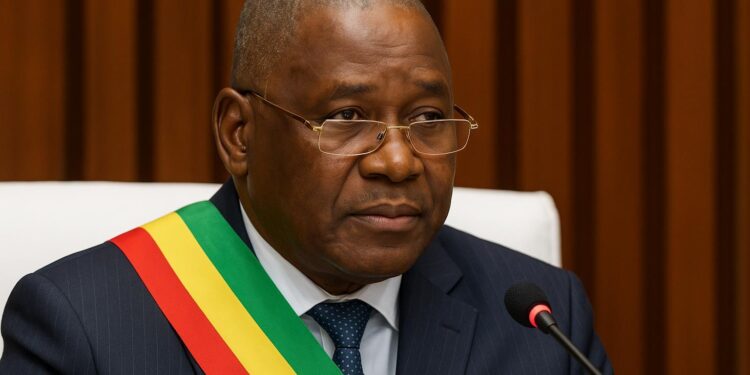Post-Session Reflections in Brazzaville
On 13 August 2025, Brazzaville’s two chambers drew the curtain on their ordinary sittings, with Assembly President Isidore Mvouba and Senate President Pierre Ngolo chairing parallel closing ceremonies that mixed protocol, statistics and carefully calibrated political messages.
Savoring the work rate of his colleagues, Mvouba declared that the chamber had met its obligations “with responsibility and gratitude,” applauding deputies, staff and partners for what he called an exemplary exercise in democratic deliberation that would “anchor confidence” ahead of forthcoming national milestones.
Ngolo, quoting President Denis Sassou Nguesso, reminded legislators that carrying the nation’s aspirations in “the secret of the heart” required clarity and loyalty, a formulation that drew long applause from senators conscious of the approaching presidential cycle.
Budget Guidance Signals Policy Priorities
Central to the session was the annual Budget Orientation Debate, an instrument inspired by francophone parliamentary practice that allows lawmakers to question fiscal assumptions before the finance bill is drafted, thereby shaping priorities that the IMF’s 2024 Article IV report described as “pivotal for inclusive growth” (IMF).
Energy diversification, rural health coverage and digital education platforms featured prominently, echoing the National Development Plan 2022-2026 while addressing voter concerns gathered during mid-year constituency hearings conducted across all twelve departments.
Lawmakers also commended the executive’s rapid relocation of families displaced by the June 2025 floods, noting the personal engagement of First Lady Antoinette Sassou-Nguesso and coordination with the World Food Programme, whose emergency bulletin signaled that 95 percent of evacuees had regained access to schooling by August (WFP).
Civic Rhetoric Stresses National Unity
Beyond numbers, Mvouba’s closing speech turned on language itself, urging citizens to trade insults for constructive critique, a theme scholars at the Africa Center for Strategic Studies link to social capital formation in fragile states (ACSS).
He portrayed National Day, 15 August, as an annual moment for collective introspection, stressing that Congo’s demographic dividend, coastline and hydrocarbons position could only translate into prosperity if the civic discourse remained temperate and policy-focused.
Community leaders from Pointe-Noire to Ouesso who joined the gallery later echoed that sentiment, telling reporters that the diaspora’s social-media reach must be mobilised for investment rather than partisan mud-slinging.
Preparing Ground for 2026 Presidential Vote
Attention inevitably shifts to the presidential contest slated for 2026, the first to be administered under the amended electoral code that mandates biometric voter authentication and synchronised provincial result transmission.
The Independent National Electoral Commission has begun consultations with the African Union’s Democracy Support Unit, seeking technical support comparable to that provided in Senegal’s 2024 polls, according to commission spokesperson Florent Ifali.
Senate President Ngolo argued that such preparations would ‘strengthen the moral contract between ballot and citizen,’ borrowing a phrase popularised by the Organisation Internationale de la Francophonie observers after Congo’s 2022 legislative races.
Guarding Free Speech Without Violence
Yet both chambers seem aware that an expanded digital arena can magnify tensions; UNESCO’s 2024 Global Report on Freedom of Expression ranks misinformation among the top five threats to electoral integrity across central Africa (UNESCO).
Consequently, senators are drafting a cross-party code of conduct for online campaigning, pairing it with media-literacy workshops led by the Ministry of Posts, Telecommunications and the Digital Economy.
Economic analysts at Fitch Solutions say the measured rhetoric now emanating from Parliament could reassure investors monitoring sovereign bond spreads, which narrowed by 35 basis points between June and August 2025 amid relative political calm (Fitch).
Legislative Output and Institutional Efficiency
Productivity figures offered during the closing ceremonies provided empirical ballast to the sanguine tone: deputies passed 27 of 32 bills, while senators adopted 24 of 27, including reforms on commercial arbitration and regional rail interoperability.
Compared with the previous ordinary session, throughput rose by eleven percent, a statistic attributed to the e-parliament platform launched in 2023 with funding from the Inter-Parliamentary Union and the European Development Fund.
African Development Bank economist Marie-Claire Kiala contends that predictable law-making, reinforced by appeals for civilised debate, constitutes a ‘soft infrastructure’ dividend that could support Congo’s medium-term objective of four percent annual growth under its 2025-2029 Strategy for the Diversification of the Economy.
Regional Diplomacy and Soft Power
While domestic consolidation dominated the agenda, several lawmakers underscored the Republic’s regional responsibilities, applauding Brazzaville’s quiet facilitation of talks between Bangui and Khartoum over transborder pastoral corridors, an initiative discreetly supported by the Economic Community of Central African States secretariat.
Foreign Minister Jean-Claude Gakosso, briefing deputies earlier in July, argued that such preventive diplomacy lowers security premiums along Congo’s northern perimeter and complements its chairmanship of the United Nations Standing Advisory Committee on Security Questions in Central Africa.
Diplomats from France, China and Gabon present in the Senate gallery later told The Patriot newspaper that Brazzaville’s dual focus on interior cohesion and neighborhood stability “sends a confidence signal” likely to attract concessional financing for cross-border transport corridors. Talks on an Afreximbank guarantee are reportedly advancing swiftly.












































